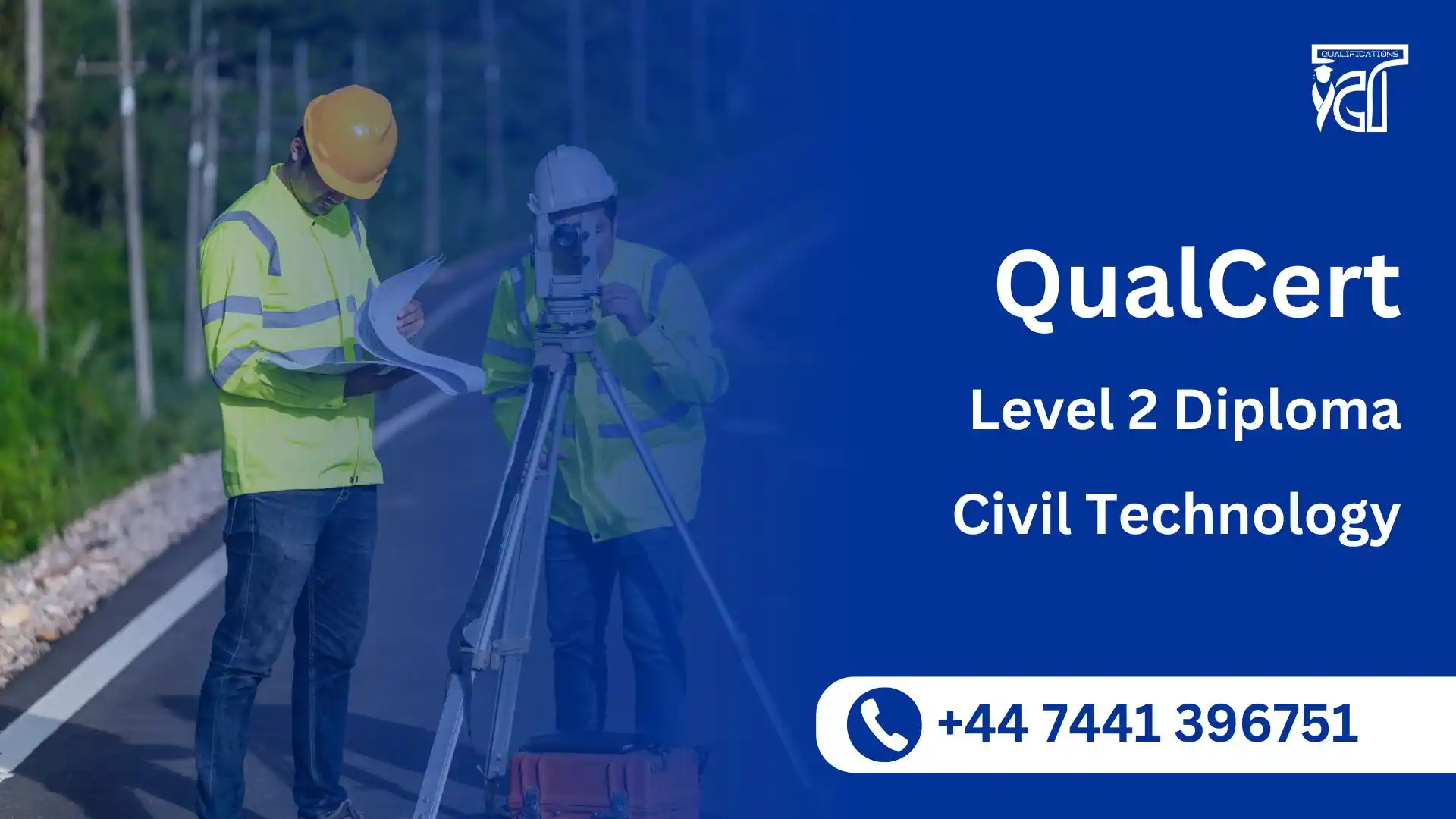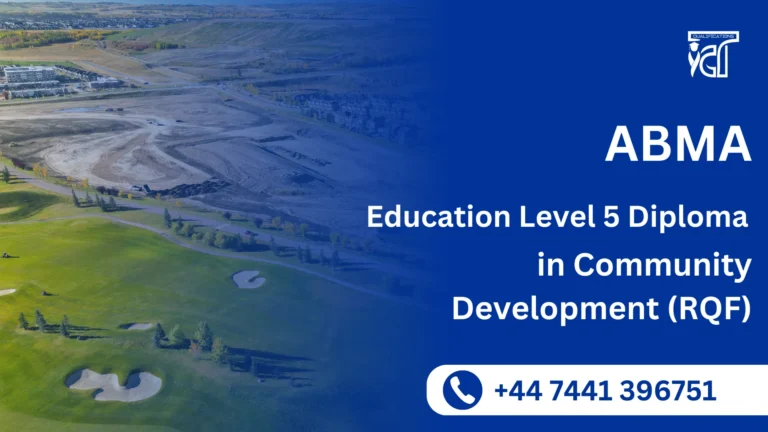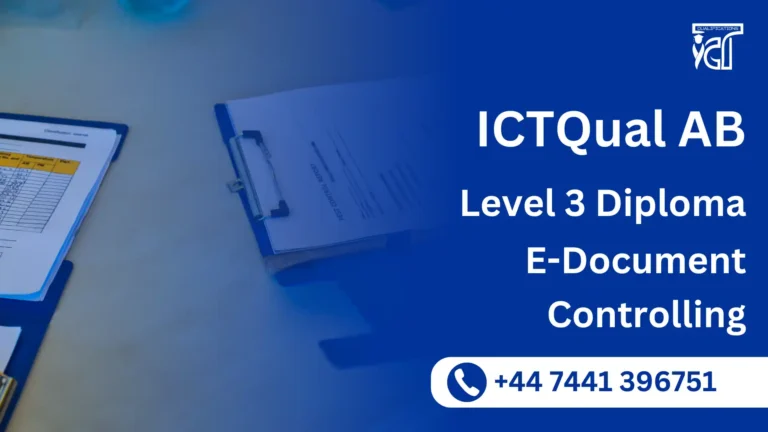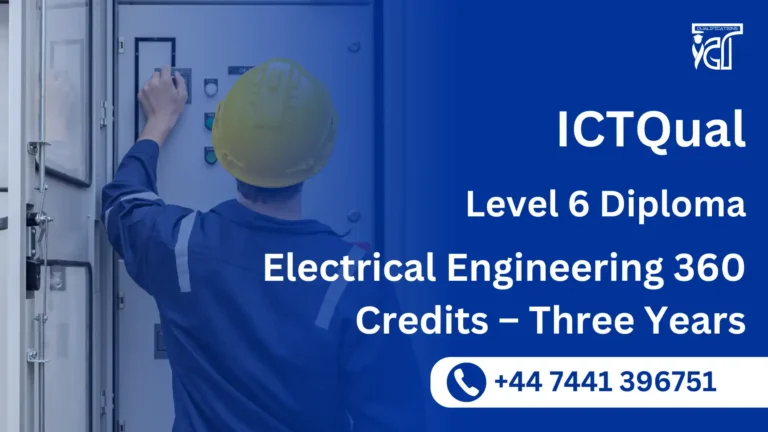The QualCert Level 2 Diploma in Civil Technology is designed to provide learners with foundational knowledge and essential practical skills required to work in the civil construction and infrastructure industries. This qualification offers comprehensive training in key aspects of civil engineering technology, including construction materials, structural systems, site preparation, surveying, and safety protocols.
This course is ideal for those looking to start a career in construction, civil works, or infrastructure development, as well as those currently employed in the industry who wish to formalize their skills and knowledge with a recognized qualification. Emphasizing both theoretical concepts and hands-on practices, the program prepares learners to contribute effectively to building projects such as roads, bridges, residential buildings, and commercial structures.
By completing this diploma, learners will be well-equipped to support engineers, supervisors, and project managers in the successful delivery of safe, efficient, and sustainable construction projects.
QualCert Level 2 Diploma in Civil Technology
The QualCert Level 2 Diploma in Civil Technology is a 42-credit qualification with a Total Qualification Time (TQT) of 210 hours, including 150 Guided Learning Hours (GLH). This course is thoughtfully designed to provide targeted and efficient skill development in the field of Civil, offering learners a solid foundation to build their expertise.
| Unit Ref# | Unit Title | Credit | GLH | TQT |
| QC02002 – 1 | Structural Mechanics | 7 | 25 | 35 |
| QC02002 – 2 | Advanced Surveying | 7 | 25 | 35 |
| QC02002 – 3 | Building Construction Methods | 7 | 25 | 35 |
| QC02002 – 4 | Soil and Foundation Basics | 7 | 25 | 35 |
| QC02002 – 5 | Construction Project Management | 7 | 25 | 35 |
| QC02002 – 6 | Applied Mathematics for Civil Technology | 7 | 25 | 35 |
GLH (Guided Learning Hours) and TQT (Total Qualification Time) are terms commonly used in vocational qualifications to help define the amount of time a learner is expected to spend on their studies.
1. GLH (Guided Learning Hours)
GLH refers to the number of hours a learner spends being directly taught, supervised, or supported during their course. This includes the time spent in activities such as:
- Classroom instruction
- Practical workshops
- One-on-one tutoring or mentoring sessions
- Online learning sessions with tutor support
In other words, GLH represents the time that learners are actively engaged with their instructors or learning activities.
2. TQT (Total Qualification Time)
TQT represents the total amount of time a learner is expected to invest in completing a qualification, including:
- GLH (Guided Learning Hours): Time spent on direct learning, as explained above.
- Self-Directed Learning: This includes time spent on independent study, research, assignment completion, preparation for exams, and any other work the learner does outside of direct teaching hours.
TQT is a broader measure that includes all the time required to achieve the qualification. It helps learners and employers understand the overall commitment required for the qualification.
Key Differences Between GLH and TQT:
- GLH focuses on direct learning with guidance or supervision.
- TQT includes GLH as well as independent study time and other learning-related activities.
Example:
If a qualification has a TQT of 600 hours and a GLH of 250 hours, it means the learner should spend 250 hours in direct learning (classroom, online, or tutor-led sessions) and 350 hours on independent study or research.
Upon successful completion of the QualCert Level 2 Diploma in Civil Technology, students will:
Structural Mechanics
- Understand the fundamental principles of structural mechanics, including forces, stress, and strain.
- Analyze the behavior of materials under various load conditions such as tension, compression, and shear.
- Apply concepts of equilibrium to solve problems related to beams, trusses, and frames.
- Evaluate the stability and strength of basic structural systems.
Advanced Surveying
- Master advanced surveying techniques, including the use of electronic instruments like total stations and GPS systems.
- Perform precise measurements for large-scale and complex construction projects.
- Interpret and create detailed topographic maps and survey reports.
- Apply advanced surveying methods to solve real-world engineering and infrastructure challenges.
Building Construction Methods
- Explore various construction techniques used for residential, commercial, and industrial buildings.
- Understand the processes involved in framing, roofing, flooring, and finishing work.
- Evaluate the selection of construction methods based on project requirements and constraints.
- Demonstrate knowledge of modern construction technologies and sustainable practices.
Soil and Foundation Basics
- Understand the properties and classifications of soil as they relate to construction.
- Analyze soil behavior under different load and environmental conditions.
- Learn the fundamentals of foundation design, including shallow and deep foundation types.
- Assess site conditions to recommend suitable foundation solutions for various structures.
Construction Project Management
- Understand the principles of planning, scheduling, and managing construction projects.
- Develop skills in resource allocation, cost estimation, and budgeting.
- Learn to monitor project progress and ensure adherence to timelines and quality standards.
- Apply risk management techniques to address potential challenges in construction projects.
Applied Mathematics for Civil Technology
- Utilize advanced mathematical concepts in solving civil engineering problems.
- Apply trigonometry, calculus, and algebra to design and construction calculations.
- Perform calculations related to structural analysis, material quantities, and surveying.
- Develop problem-solving skills through mathematical modeling of engineering scenarios.
Benefits of the QualCert Level 2 Diploma in Civil Technology:
Foundational Industry Knowledge
Gain a strong understanding of essential civil engineering concepts, construction materials, and building techniques, preparing you for entry-level roles in the construction sector.
Hands-on Practical Skills
Develop key practical abilities in site preparation, surveying, safety procedures, and construction methods, making you job-ready for various civil technology roles.
Career Advancement Opportunities
Enhance your employability in roles such as construction technician, site assistant, engineering support staff, or infrastructure project coordinator, with pathways to higher-level qualifications or specialized training.
Alignment with Industry Standards
Learn according to the latest industry practices and safety standards, ensuring your skills are relevant to the demands of the modern civil engineering and construction fields.
Preparation for Further Study
Serve as a foundation for progression into advanced diplomas or degree programs in civil engineering, construction management, or related disciplines.
Enhanced Problem-Solving Skills
Improve your ability to analyze, interpret, and solve practical challenges commonly faced in civil works and construction sites.
Ideal Learner: Who Should Enroll?
The QualCert Level 2 Diploma in Civil Technology is designed for individuals who:
- Aspire to start a career in civil engineering, construction, or infrastructure development, and want to build a strong foundation in civil technology.
- Are school leavers or recent graduates seeking entry-level qualifications to access opportunities in the construction and civil works industries.
- Construction workers or laborers looking to upgrade their technical knowledge and move into more skilled or supervisory roles within the industry.
- Technical assistants or site support staff who want to formalize their skills with a recognized industry qualification.
- Individuals interested in understanding construction materials, surveying, structural systems, and site development practices used in civil engineering projects.
- Those considering future studies in civil engineering, architecture, or construction management and wishing to gain a solid practical and theoretical grounding beforehand.
- Anyone passionate about contributing to the planning, design, and building of infrastructure projects that improve communities and support sustainable development.
Entry Requirements
Register Now
Qualification Process
Qualification Process for the QualCert Level 2 Diploma in Civil Technology
- Self-Assessment:
Begin by evaluating your eligibility to ensure you meet the qualification requirements, including work experience, knowledge, and language proficiency. - Registration:
Complete your registration by submitting the required documents, including a scanned copy of a valid ID, and paying the registration fee. - Induction:
An assessor will conduct an induction to confirm your eligibility for the course and explain the evidence requirements. If you do not meet the criteria, your registration will be canceled, and the fee will be refunded. - Assignmnets & Evidence Submission:
Provide all assignmnets and the necessary evidence based on the assessment criteria outlined in the course. If you are unsure of the required evidence, consult with the assessor for guidance on the type and nature of evidence needed. - Feedback and Revision:
The assessor will review your submitted evidence and provide feedback. Evidence that meets the criteria will be marked as “Criteria Met,” while any gaps will be identified. You will be asked to revise and resubmit if needed. - Competence Evidence:
Submit final evidence demonstrating that all learning outcomes have been met. This evidence will be marked as “Criteria Met” by the assessor once it is satisfactory. - Internal Quality Assurance (IQA):
The Internal Quality Assurance Verifier (IQA) will review your evidence to ensure consistency, quality, and compliance with standards. - External Verification:
The IQA will submit your portfolio to QualCert External Quality Assurance Verifiers (EQA) for final confirmation. The EQA may contact you directly to verify the authenticity of your evidence. - Certification:
Upon successful completion of all checks, QualCert will issue your official certificate, confirming that you have attained the QualCert Level 2 Diploma in Civil Technology.







